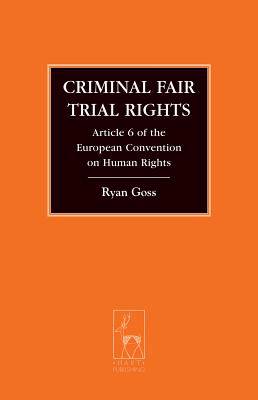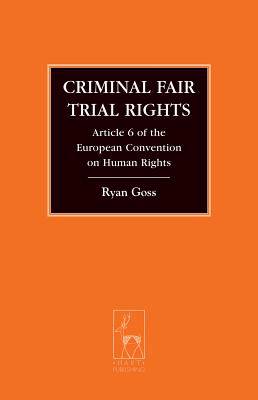
- Afhalen na 1 uur in een winkel met voorraad
- Gratis thuislevering in België vanaf € 30
- Ruim aanbod met 7 miljoen producten
- Afhalen na 1 uur in een winkel met voorraad
- Gratis thuislevering in België vanaf € 30
- Ruim aanbod met 7 miljoen producten
Omschrijving
The Article 6 fair trial rights are the most heavily-litigated Convention rights before the European Court of Human Rights, generating a large and complex body of case law. With this book, Goss provides an innovative and critical analysis of the European Court's Article 6 case law.
The category of 'fair trial rights' includes many component rights. The existing literature tends to chart the law with respect to each of these component rights, one by one. This traditional approach is useful, but it risks artificially isolating the case law in a series of watertight compartments.
This book takes a complementary but different approach. Instead of analysing the component rights one by one, it takes a critical look at the case law through a number of 'cross-cutting' problems and themes common to all or many of the component rights. For example: how does the Court view its role in Article 6 cases? When will the Court recognise an implied right in Article 6? How does the Court assess Article 6 infringements, and when will the public interest justify an infringement?
The book's case-law-driven approach allows Goss to demonstrate that the European Court's criminal fair trial rights jurisprudence is marked by considerable uncertainty, inconsistency, and incoherence.
Specificaties
Betrokkenen
- Auteur(s):
- Uitgeverij:
Inhoud
- Aantal bladzijden:
- 254
- Taal:
- Engels
- Reeks:
- Reeksnummer:
- nr. 11
Eigenschappen
- Productcode (EAN):
- 9781509909865
- Verschijningsdatum:
- 29/09/2016
- Uitvoering:
- Paperback
- Formaat:
- Trade paperback (VS)
- Afmetingen:
- 156 mm x 234 mm
- Gewicht:
- 362 g

Alleen bij Standaard Boekhandel
Beoordelingen
We publiceren alleen reviews die voldoen aan de voorwaarden voor reviews. Bekijk onze voorwaarden voor reviews.








